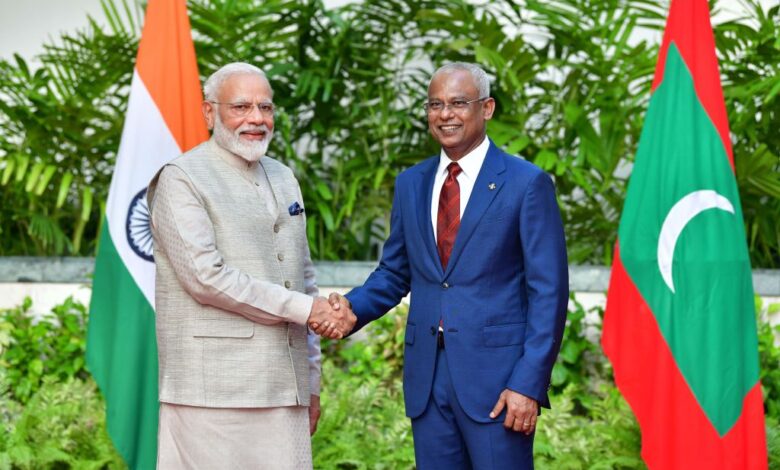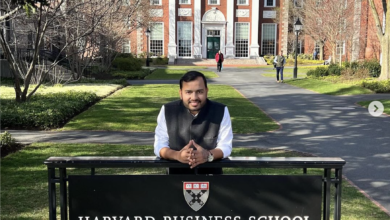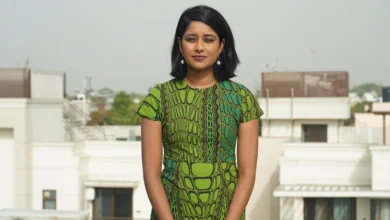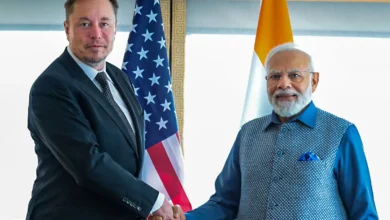India has seen a loss of its alliances in the Maldives.
The Maldives is a small archipelagic country located south of Sri Lanka, positioned inside the Indian Ocean. The nation in question has historically been seen as a strategic ally of India. However, the outcome of the recent election has generated a sense of uncertainty over its continued position as an ally of India.

The Maldives recently held a presidential election, resulting in the victory of Opposition candidate Mohamed Muizzu over the incumbent President Ibrahim Solih in a second-round runoff. This outcome has raised speculation about a potential shift towards closer ties with China for the Indian Ocean archipelago, potentially diverging from its traditional alliance with India.
Solih, who advocated for a strategy prioritising India, will continue to serve as president until the inauguration of Muizzu on November 17th.
The alliance that has provided support to Muizzu has previously endorsed Chinese financing and investment initiatives.
The individual now serving an 11-year jail sentence for corruption and money laundering is Former President Abdulla Yameen, who has strong ties with Muizzu. According to Yameen’s proponents, the allegations levelled against him are purportedly driven by political motivations.
“Today the people made a strong decision to win back Maldives independence,” Muizzu told reporters in the capital, Male.
“All of us, working together with unity, Insha Allah, we will be successful.”
Muizzu also called on President Solih to release Yameen to house arrest.
Indian Prime Minister Narendra Modi sent a congratulatory message to Muizzu following the announcement of his victory.
“India remains committed to strengthening the time-tested India-Maldives bilateral relationship and enhancing our overall cooperation in the Indian Ocean Region,” Modi said on X.
India and Maldives are geographically adjacent countries that share a marine boundary. The bilateral relations between the two parties have been characterised by a cordial and intimate nature, particularly in the domains of strategic, economic, and military collaboration. India is committed to upholding security in the island country.
The provision of financial help by India serves as a notable illustration of the longstanding and reliable relationship between India and Maldives. The mutually linked concepts of India’s “Neighbourhood First” and Maldives’ “India First” policies have effectively collaborated to safeguard the well-being of the residents of both countries. Furthermore, this provision of aid provides evidence that India continues to demonstrate unwavering support for the government and people of Maldives in the foreseeable future.
This initiative signifies India’s second-largest active plantation infrastructure project, after the Greater Male Project, which has a budget of $500 million. The primary objective of the Greater Male Project is to provide a connection between the capital city and three neighbouring highlands by means of a sea bridge spanning a distance of 6.74 km.
In the past, the level of rivalry between India and China in the Maldives was minimal. During the first four decades after its independence, the country remained firmly under the sphere of influence of India. India emerged as one of the pioneering nations to forge diplomatic ties with the Maldives after it attained freedom in the year 1965. The city of New Delhi provided support to President Maumoon Abdul Gayoom, a leader known for his authoritarian leadership from 1978 to 2008. In 1988, New Delhi intervened to assist in suppressing a coup attempt. India also extended other forms of assistance, such as commercial collaboration and humanitarian aid in response to natural calamities. India assisted Mohamed Nasheed, the successor of Gayoom when the Maldives underwent a transition to democracy in 2008.
India saw a decline in its influence and relations with the Maldives in the year 2013. Following a period of political instability, Abdulla Yameen assumed power via a democratic election. Yameen, a leader with dictatorial tendencies, swiftly garnered support from Beijing. During a period when China was in the process of establishing the foundation for the Belt and Road Initiative (BRI), it concurrently initiated several novel infrastructure projects in the Maldives. Subsequently, a free trade agreement between China and Maldives was established, accompanied by the official inclusion of Malé as a participant in the Belt and Road Initiative (BRI). In 2018, Beijing successfully executed a significant enhancement project, which included the construction of a new 3,400-meter runway at the primary international airport of the Maldives. Additionally, a novel bridge was established to connect the islands of Malé and Hulhumalé. The Maldives has incurred expenditures as a result of these initiatives. As of 2018, the city of Malé has accumulated a debt of around $1.5 billion due to loans from China. This amount is considered significant considering the nation’s GDP, which is less than $9 billion. The economic burden imposed by indebtedness to China extends beyond the confines of a country’s financial system. There is an additional concern over the potential vulnerability of the country to “debt trap diplomacy,” a situation in which Beijing exploits debt as a means to advance its interests via borrower nations. It should be noted, however, that several scholars refute the notion of debt-trap diplomacy.
Nevertheless, a significant shift occurred in 2018 when Mohamed Ibrahim Solih’s victory reinstated democratic governance and revitalised the robust relationship between the Maldives and New Delhi. Solih implemented a strategy known as the “India First” approach, intending to enhance the diverse and mutually advantageous cooperation between the Maldives and India. Solih decided to withdraw from the bilateral trade agreement between his nation and Beijing. The Government of India allocated a sum of $1.4 billion to assist the Maldives in meeting its debt repayment obligations, while also extending supplementary financial aid for the implementation of community development initiatives. The city of New Delhi is now engaged in the implementation of many developmental projects, including the establishment of a new cancer hospital and cricket stadium, the enhancement of a port, and the modernisation of an airport.
Please, also have a look into : India to take cautious stance as pro-China leader Muizzu becomes Maldives President



